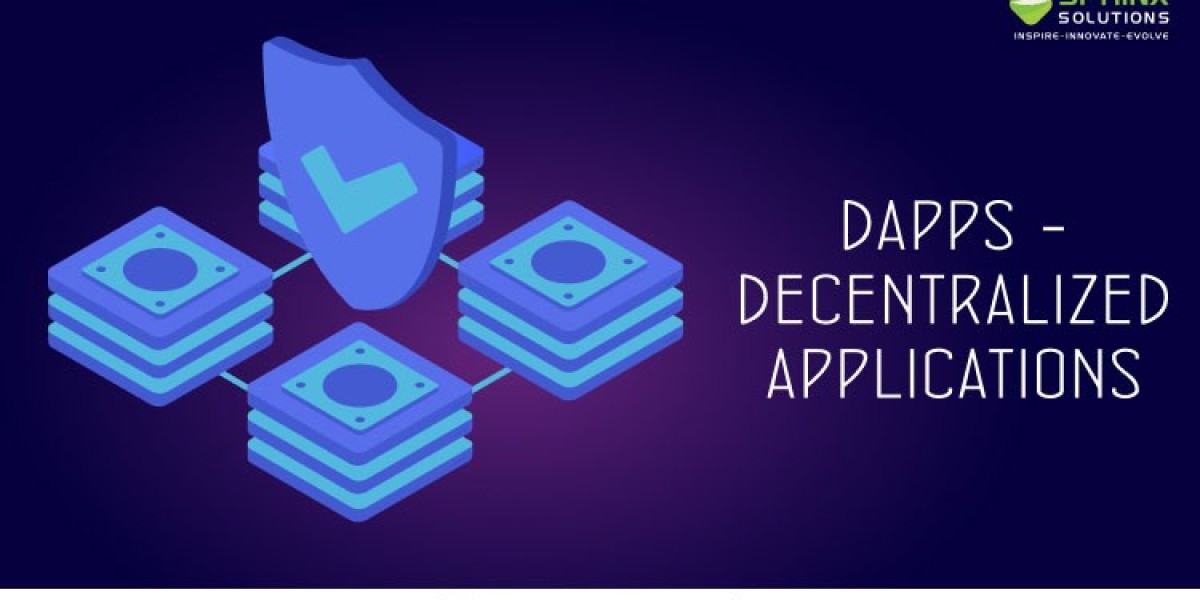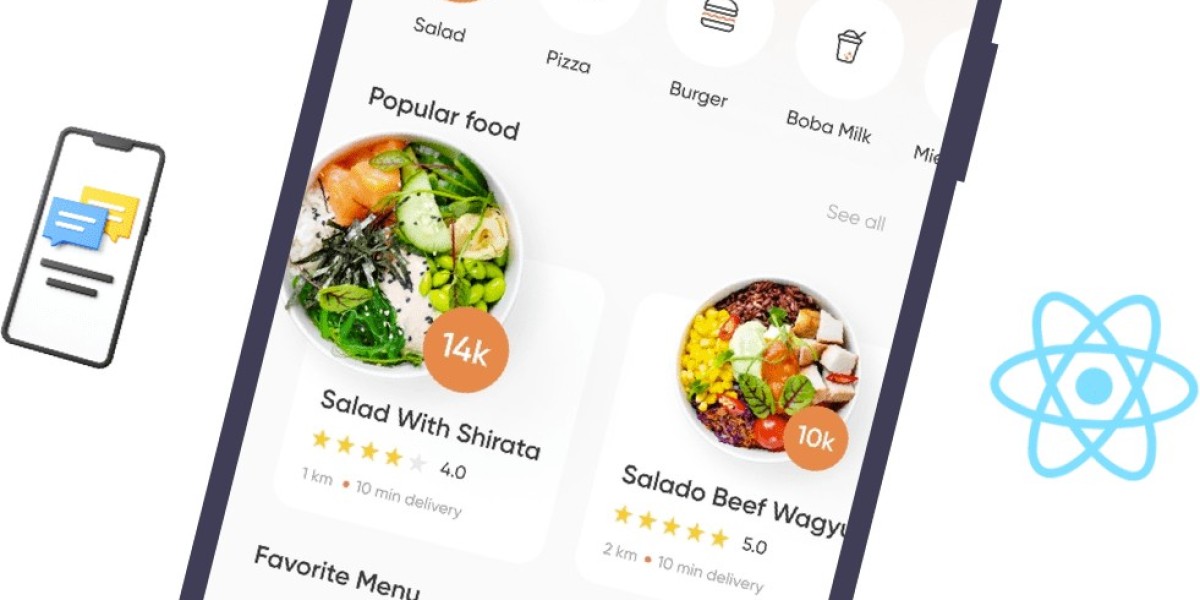Blockchain is a well-recognized database mechanism allowing transparent data sharing within business networks. No doubt, the global market value of blockchain technology is projected to reach approx $163.83 billion by 2029. Clearly, the demand for decentralized ledger technology is rising.
Till now, you have seen too many headlines and stories related to crypto wallets, NFTs, and Bitcoin, over the internet. However, decentralized application or dApps development is something you also hear about. dApps are open-source applications used to interact with smart contracts that mainly run on a P2P network server.
In short, decentralized applications are developed on a decentralized network such as Ethereum. Moreover, the data or information stored in dApps are fully secured. This blog will focus on the multiple aspects of decentralized applications. However, navigating this dynamic ecosystem requires expertise and guidance. This is where partnering with a leading web application development company specializing in decentralized technologies becomes paramount. Let’s dive in!
What is dApp Development?
The decentralized application development platforms help to automate procedures, rescue costs & also achieve flawless P2P transactions. When making decentralized applications, a dApp developer uses several dApp programming languages, blockchain protocols & frameworks.
Steps to Develop dApp
The entire world of blockchain brings plenty of opportunities for today’s businesses. If you’re in search of high transparency, efficiency & security for your business, dApps and blockchain technologies will catch your attention. However, developing a decentralized application is slightly different from the traditional custom software development process. To build a DApp, you have to study how blockchain technology works. Here are the crucial steps of dApp development.
Step 1: Problem Identification
Before you start developing the process, you have to identify challenges or problems that you want to solve, in short, the application of your future app. Firstly, determine and outline the common difficulties you are facing and decide how your decentralized application will help to solve them. Problem identification helps to make the entire development process simpler and flawless.
Step 2: Proof-of-Concept Creation
Proof-of-concept creation helps to analyze and test your decentralized application. In this step, you have to make a Proof-of-Concept or POC to validate your ideas & showcase their feasibility. POC allows you to test your decentralized application with minimal resources before you spend a huge time & money on development. Moreover, POC creation helps to identify improvement areas and pain points.
Step3: Choose a DLT Platform
Once your POC is done successfully, you have to focus on the process of execution. There are too many DLT platforms available for dApp developments, you have to make sure which one is ideal for you. Each blockchain or DLT platform has certain features & limitations, hence you should spend your time determining which will suit all your project requirements. Presently, the Ethereum blockchain is one of the best platforms for dApp development.
Step 4: dApp Development and Testing
After choosing the right DLT platform, you have to move forward to the dApp development and testing process. Whether you’re planning to build an in-house developer’s team or hire dApps development company, try to make sure that your dApp undergoes a proper testing process.
This is because you never want to release your software & face problems that could have been prevented.
Step 5: dApp Launching
After thorough testing, your decentralized application is ready to release. Before launching, you have to check the entire application to make sure that it’s bugs and flaws-free. When your developer’s team confirms that the functionality of dApp is 100% perfect, you can launch it in the market.
Looking for a dApp developer?
We specialize in developing decentralized applications for multiple sectors, with a deep focus on DeFi, NFTs, and dApp gaming.
Types of dApp Development Services
Developing a decentralized application goes through a number of steps so that the final product fully serves desired use cases. 4 popular dApp development services are mentioned below.
- MVP Consulting: With MVP consulting solutions, dApp developers deeply analyze the dApp market trends. They effectively find out the possible stakeholders to define technical components & suggest the appropriate platform of blockchain based on their client’s requirements.
- dApp Design Solutions: From the initial planning phase to interactive & final prototype development, experts usually follow systematic & structured UI design processes. They specialize in making simple and intuitive front ends for an optimal and exceptional user experience. Moreover, developers also follow user-first approaches and interactive design structures to create a self-explanatory & navigational interface for new & active users.
- Decentralized Exchange Development: This is a development process of making highly customized and scalable customized exchange (DEX) platforms that effectively support peer-to-peer transactions and erase the requirements of intermediaries. DEX platforms may connect with external exchanges through APIs as well as distributed shared order books.
- dApp Upgradation & Maintenance: Upgradation & maintenance services are crucial to prevent decentralized application downtimes & facilitate an excellent user experience. These services also ensure that your entire business operations are continuing uninterruptedly. Timely upgrades and end-to-end maintenance keep the dApp’s performance flawless. Apart from these services, you can also get smart contract deployment & microservices for your decentralized applications.
Popular dApp Use Cases
- NFT Ticketing dApps: These decentralized applications are analytical platforms offering real-time metrics of the ticketing information for an event organizer.
- Gaming dApps: Gaming dApps allow players to have full control over their game assets. The biggest benefit of gaming dApps is that they depend on a decentralized network. This means they experience no downtime.
- Social Media dApps: Social media dApps are powered by smart contracts and the contract code usually acts like a backend & defines the business logic. They allow curators to monetize their creations seamlessly & store content on the blockchain’s immutable ledger.
- DeFi dApps: DeFi or decentralized finance dApps allow an online user to participate or engage in financial services. These applications provide low-to-no credit checks, fast transaction processes, & the chance to utilize virtual assets.
What are The Best dApp Development Platforms?
Decentralized applications (DApps) differ from centralized or traditional applications in their storage and maintenance. Instead of being stored on a central server, DApps are maintained through distributed networks, offering heightened security and transparency. DApp activities are recorded and stored on a public ledger, making them visible to everybody. If you're considering developing a DApp and searching for expertise, you might want to explore to hire app developer in USA. Here are the 5 best platforms for building a decentralized application.
- Ethereum: Ethereum is a decentralized, open-source public platform having smart contract functionality. Recently, this is one of the most powerful blockchain platforms for developing dApps. It offers fast application scaling & completes smart contract support. Moreover, Ethereum also delivers the building blocks for well-structured and systematic decentralized application development.
- Solana: Solana is a high-performance next-gen public blockchain platform written in C++ & Rust. This platform is mainly designed for hosting completely scalable and decentralized applications. It offers highly advanced and secure infrastructure required for dApp development. It also leverages computational systems that support several nodes. Speed is important for any decentralized application & Solana can support approx 50,000 transactions/second (TPS) that makes it one of the fastest platforms for dApps.
- EOS: EOS is an efficient cloud platform designed to develop, deploy & launch decentralized applications. It’s an all-in-one blockchain platform for smart contract execution, application hosting as well as enterprise solutions. This platform offers dApp developers a unique solution for app hosting, smart contracts execution, & other operating systems. The EOS uses WebAssembly for compiling smart contracts & supporting the major programming languages such as Python, Solidity & Rust to build DApps. Key advantages of making dApps on EOS are an effective bug recovery system, smart contract deployment, and several plug-ins that integrate data from the blockchain.
- Polygon: Polygon is a blockchain-based scalability platform that helps to bridge the gap between Ethereum-compatible networks. Polygon was called the Matic network that adopts the PoS consensus mechanism and aggregates solutions to make multichain ecosystems. Polygon Matic is known for its scalability which makes it an ideal choice for decentralized application development. This platform utilizes PoS algorithms with a layer-2 scaling solution and it takes benefits of Ethereum’s technology. This enables Polygon Matic to deliver higher throughput, lower transaction costs, & increased development support.
- Tron: Tron is a popular public blockchain platform that is the ideal choice for entertainment decentralized applications. Tron supports a number of programming languages such as C++, JavaScript, Python, Scala, etc. Tron architecture contains three layers – storage layer, application layer, and core layer. This blockchain-based platform is used to develop decentralized applications based on exchanges, games, media, & collectibles. The benefits of using the Tron blockchain to develop dApps are scalability, security confirmation, high effectiveness, data ownership, and equivalent рrоfіtѕ.
- Cosmos: Cosmos is one of the decentralized peer-to-peer networks of independent blockchains powered by BFT consensus algorithms. The Cosmos SDK provides developers with a new framework to develop secure and secure blockchain-powered dApps. With the Cosmos platform, a blockchain easily processes transactions, maintains sovereignty, & interacts with other blockchains which makes it very optimal for several use cases. If you're looking to leverage the potential of Cosmos for your project, consider to hire dedicated developers India. They bring expertise and cost-effectiveness to your development efforts.
Are you in search of dApp development services?
Our team of developers transforms your ideas into robust decentralized applications that will give you an unmatched user experience.
Final Words
Though the dApp development process is still in an early phase, we already see decentralized applications being used in gaming, logistics, finance & other sectors. dApps are helpful in making a unique relationship between dApp developer and client so that they organize an effective supply chain management. If you would like to stay updated with digital innovation & blockchain-based technologies, get in touch with Sphinx Solutions, the best Android app development company, to explore cutting-edge solutions in the realm of decentralized applications.



